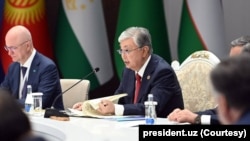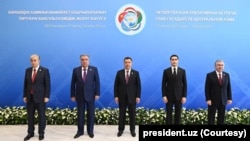
Amazon Prime Video has announced its first slate of Southeast Asian local-language originals, including a trio of situational comedy improv shows, Comedy Island, across Indonesia, Thailand and the Philippines, and projects from local talents including Joko Anwar, Kamila Andini and Banjong Pisanthanakun.
The trio of comedy shows – Comedy Island: Indonesia, Comedy Island: Thailand and Comedy Island: Philippines – all involve famous comedians and other celebrities being stranded on a paradise island and are expected to start streaming in 2023.
In Thailand, the comedians must escape from a mysterious scientist who is trying to reprogram them; in Indonesia, they’re forced to take part in bizarre, role-playing games to amuse the local inhabitants; and in the Philippines, they’re trapped on a lost island that has reappeared and are competing for a life-changing prize. Indonesia’s Base Entertainment is producing the Indonesian and Filipino versions, while Liminal Productions is producing the Thai version.
Amazon has also started developing a slate of other local-language originals, including two Indonesian films – Siege At Thorn High, directed by Anwar (Satan’s Slaves) and produced by Come & See Pictures, and 4 Seasons In Java, produced by Four Colour Films and written by Andini (Before, Now & Then).
Thai projects in development include Three Idiots And A Ghost, a film based on the novel by Sal Kim and published by Wattpad with Jungka Bangkok producing; scripted series Metal Casket from writer/director Banjong (Pee Mak), as well as How To Fake It In Bangkok, from Halo Productions with Ananda Everingham executive producing.
The originals will be supported by local-language licensed content including Perfect Strangers, the Indonesian version of the Italian hit, which launches October 17; Ashiap Man, directed by Atta Halilintar (November 14) and horror movie Kuntilanak 3, directed by Rizal Mantovani and starring Julie Estelle (October 10).
The Thai slate includes pandemic thriller The 100 (December 12), coming-of-age thriller The Up Rank, starring Krit Jeerapattananuwong (November 14), and action drama My True Friends: The Beginning, starring Ryu Vachirawich and Nak Charlie Trairat, which starts streaming today (August 1).
Content from the Philippines includes comedy drama Big Night, starring Christian Bables and directed by Jun Lana, which also streams from today; romance How To Love Mr. Heartless, starring Sue Ramirez (August 15), and surreal drama Whether The Weather Is Fine, starring Daniel Padilla (October 10).
Amazon is also launching local pricing and marketing campaigns across the three territories, backed by stars including Iqbaal Ramadhan, Chicco Kurniawan and Kiky Saputri in Indonesia, Mario Maurer in Thailand and Anne Curtis in the Philippines. Local pricing is around $4 a month in Indonesia and Thailand (IDR59,000 and THB149) and $3 a month in the Philippines (PHP149), following a seven-day free trial.
The local offering will also include Korean, Japanese and English-language films and series, including Korean romantic film Nothing Serious and hit Japanese animation Demon Slayer, which both stream from today, and Ron Howard’s Thai cave rescue film, Thirteen Lives, which streams from August 5.
“We’re delighted to be increasing our investment in Prime Video for customers in Southeast Asia, making it a truly localized experience – from local content specifically sourced for our customers, to a localized user experience, and the first full-scale local marketing campaign,” said Josh McIvor, director of International Expansion, Prime Video.
Erika North, head of Asia-Pacific Originals, Prime Video, said: “Southeast Asia is a tapestry of cultures, languages, and histories, and there has truly never been a better time to be a content creator or a content consumer in this part of the world. We are thrilled to be bringing our first three local Amazon Originals, the hilarious world of Comedy Island to customers in Indonesia, Thailand, the Philippines, and worldwide.”
Amazon Prime Video has been available across Southeast Asia since 2016, but this is the first time the service has had a localized user experience and offered local-language shows. North announced plans to ramp up investment in Southeast Asia at Singapore’s Asia TV Forum & Market (ATF) last December, since when the streamer has been building out a local production and marketing team in Singapore.
"asian" - Google News
August 01, 2022 at 07:00AM
https://ift.tt/v9YFho4
Amazon Prime Video Announces First Southeast Asian Originals And Local User Experience - Deadline
"asian" - Google News
https://ift.tt/GJ3IBmT
Shoes Man Tutorial
Pos News Update
Meme Update
Korean Entertainment News
Japan News Update







/cloudfront-us-east-2.images.arcpublishing.com/reuters/XXHEELLNVBIDHGRRI6FMNZQDEU.jpg)
:quality(70)/cloudfront-us-east-1.images.arcpublishing.com/mco/DRNRRWL4MBD2DMEI2HIKRXLVJA.jpg)
:quality(70)/cloudfront-us-east-1.images.arcpublishing.com/mco/XHBWOCAFNNEW3H7VDAXF6YNSIY.jpg)



/cloudfront-us-east-2.images.arcpublishing.com/reuters/WSL4ORQCE5NN5FWKXY42FOI63M.jpg)
